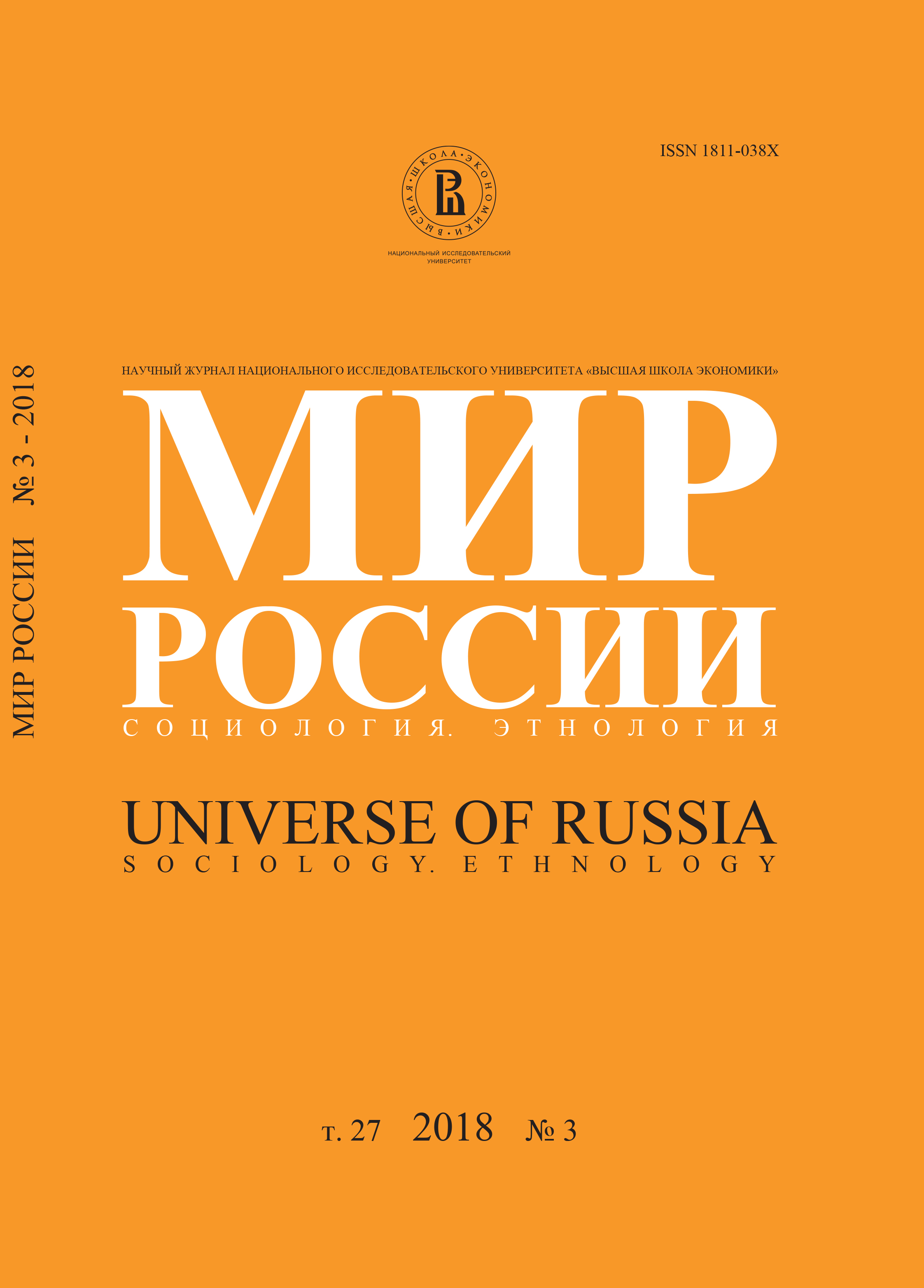Social Justice in Healthcare in the Experiences and Judgments of Russians
Abstract
Zhanna Saveleva – DSc in Sociology, Associated Professor, Department of History, Philosophy and Sociology, Kazan State Medical University. Address: 49, Butlerov St., Kazan, 420012, Russian Federation. E-mail: gedier@mail.ru
Laissan Mukharyamova – DSC in Politics, Professor, Chief, Department of Department of History, Philosophy and Sociology, Kazan State Medical University. Address: 49, Butlerov St., Kazan, 420012, Russian Federation. E-mail: l.mukharyamova@yandex.ru
Irina Kuznetsova – PhD in Sociology, Assistant Professor, Senior Researcher, School of Geography, Earth and Environmental Sciences, University of Birmingham, United Kingdom; Assistant Professor, Department of History, Philosophy and Sociology, Kazan State Medical University. Address: 49, Butlerov St., Kazan, 420012, Russian Federation. E-mail: i.kuznetsova@bham.ac.uk
Citation: Saveleva Zh., Mukharyamova L., Kuznetsova I. (2018) Social Justice in Healthcare in the Experiences and Judgments of Russians. Mir Rossii, vol. 27, no 3, pp. 154–179 (in Russian). DOI: 10.17323/1811-038X-2018-27-3-154-179
In this article, we analyze the judgments of experts and the population regarding social justice in the provision of healthcare in Russia. We frame our study in the context of post-socialist transformations, the continuous underfunding of public healthcare and the unfavorable health status of Russians. The study contributes to the debates on the meaning of equality in healthcare provision, the responsibility for personal health and the principles of a just distribution of healthcare. Empirically the study draws on
interviews with experts in healthcare provision, patients and a survey of the population in the Republics of Tatarstan and Mari El (2016–2017). Regardless of the widely recognized (albeit modest) improvements in the quality of healthcare provision in the recent years, we find that the existing system promotes inequality both between and within regions (i.e. between rural and urban areas). Lowincome families and the elderly are largely excluded from modern diagnostics and medical treatment. The system is considered just by only a third of respondents, while the majority have a clear preference towards redistributive healthcare provision over market-based principles. There is a strong demand for increased state spending on public
healthcare, anticorruption policies and policies to improve access to state-subsidized medical services.






